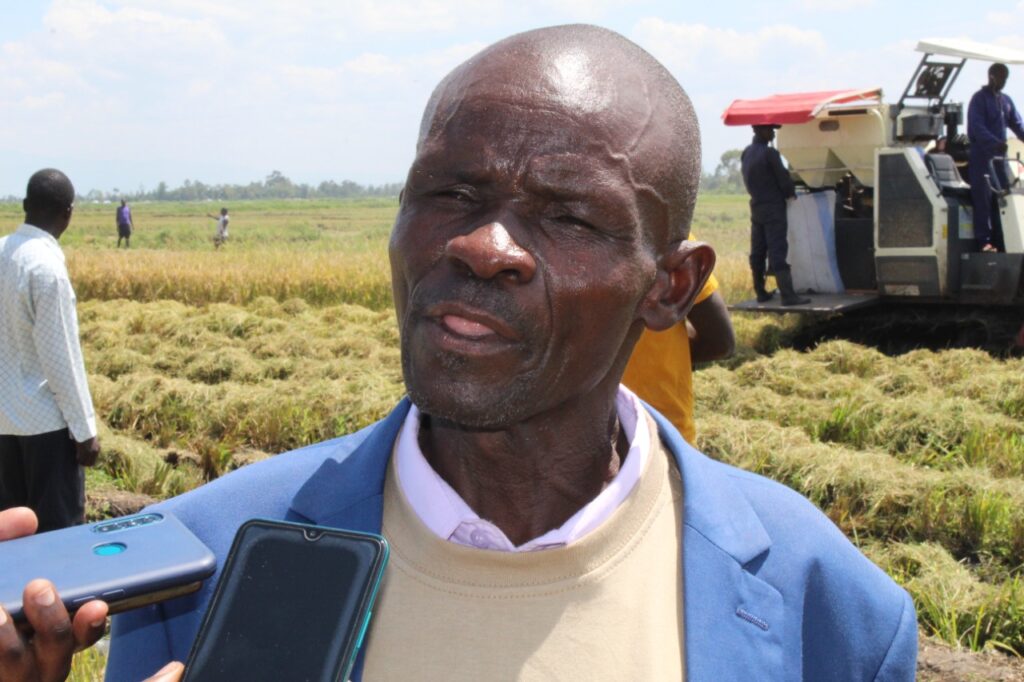Rice farmers from the Nyando rice belt are set to turn around their harvest fortunes following the introduction of a new rice variety in the area.
The new hybrid rice variety which matures faster than the traditional local breed and is said to give better yields upon harvesting.
Dr Kayode Sanni, the rice project manager at the African Agricultural Technology Foundation (AATF) said that the hybrid rice would be the game changer for the region.
90% of the rice we consume in Kenya is imported from Pakistan and other places. The hybrid has very quality just like what we import from outside
Dr. Saani
“According to the National Rice Development Strategy, Kenya targets the production of between 7 to 10 tonnes per hectare up from the current 4 tonnes in the next 10 years. With this hybrid, we shall achieve the target,” said Sanni.
Production
With successful trials already carried out in Mwea, AATF which has partnered with Hybrid East Africa Limited to develop the hybrid, will see it commercially produced by different seed manufacturers.
Sanni who spoke during the launch of the new variety in Ahero further noted that Kenya is able to produce enough rice for home consumption and have surplus for export.
“90% of the rice we consume in Kenya is imported from Pakistan and other places. The hybrid has very quality just like what we import from outside,” he said.
If we have good seed and farmers are able to produce, farmers will have higher returns and product that is acceptable in the market, locally and even for export
Kennedy Ouma
Profits
Mathew Mbeka, a local farmer who planted the hybrid rice at the Ahero Irrigation scheme said that the production was less labour intensive compared to the local types he has been producing.
“On my parcel of about half an acre, the cost of production of the local breed was about Sh70,000 because I used about 25 kgs of seeds while for the hybrid, I only used about 6kgs,” he said.

The National Irrigation Authority (NIA) Manager Kennedy Ouma said the increase in production will see farmers increase their profits from the sale of their produce.
“If we have good seed and farmers are able to produce, farmers will have higher returns and product that is acceptable in the market, locally and even for export,” said Ouma
He lauded the trainings and sensitization of farmers as a way of ensuring that there is growth in yield which then translates into economic returns to the farmers.
Emmanuel Juma, the scheme chairman said the farmers are actively taking the hybrid varieties which are resistant to diseases and extreme weather conditions unlike the local variety.
“The IR variety which is local is extremely vulnerable to adverse weather condition while the new one can withstand, it is high yielding and it has the long grain,” he said.
